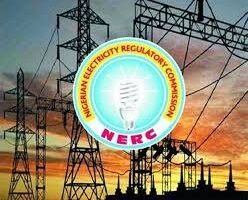Chevron Nigeria Limited (CNL) has said it is committed to lower carbon as it continues to measure and track emission from its operations.
In its 2021 Corporate Responsibility Report, the company added that going forward; its operations will focus on methane, flaring and energy management.
According to the oil major, it instituted various projects which are at different at of completion to reduce greenhouse gases and eliminate methane emission from its operations.
To back up its resolve, the company said in the report that it is gradually eliminating the use of natural gas as inert flare purge gas in our EGTL operations; increased focus on identifying and addressing hydrocarbon leaks using the leak detection and repair (LDAR) programme; eliminating routine gas flaring and building a profitable gas business through a diverse portfolio of Okan GGCP Tri-ethylene Glycol (TEG) Regeneration Package being moved to the GGCP Deck 33 2021 corporate responsibility report chevron in Nigeria domestic, regional and export supply projects that fulfill the NNPC/CNL Joint Venture’s Domestic Gas Supply Obligation (DGSO) and support the Nigerian Gas Master Plan.
According to the report, Chevron is supportive of Nigeria’s commitment towards energy transition with special focus on both clean energy technologies and natural gas and the Decade of Gas initiatives led by the Ministry of Petroleum Resources.
“We have progressively achieved a 95 percent reduction in routine flaring in our joint venture operations in the past 10 years. Chevron intends to be a leader in efficient and lower-carbon production of traditional energy – in high demand today and for years to come – while growing the lower-carbon businesses that will be a bigger part of the future.
“As a company, Chevron is taking actions globally to create a lower-carbon future by reducing the carbon intensity of our operations and assets, increasing the use
of renewables and offsets, and investing in low-carbon technologies,” Chairman and Managing Director, Rick Kennedy said.
The company continues to be a top supplier of on-spec gas into the Nigerian domestic market. Chevron supplies 40 per cent of the Nigerian natural gas market for power and is also the largest shareholder in the West African Gas Pipeline (WAGP), a 678-km pipeline that supplies gas to Benin Republic, Togo, and Ghana, as part of a broader
initiative to develop the energy sector in the region. WAGP is the first regional natural gas transmission system in Africa.
Part of the strategy is to end routine gas flaring; boost power supply; boost regional economic development; and diversification and commercialization of gas resources through escravos gas-to-liquids plant.
In 2021, Chevron Nigeria continued to monetize recoverable natural gas resources of approximately 17 trillion cubic feet in the Escravos area through a combination of domestic and export sales and use as fuel in company the. Net daily production in 2021 averaged 510 million cubic feet of gas per day.
“The EGTL has led to the production of high-quality diesel, naphtha and liquefied petroleum gas,” the company said.
Nigerian content strategy
The continues to demonstrate commitment to the socio-economic development of Nigeria by building mutually beneficial partnerships and supporting the Federal Government’s Nigerian Content Development (NCD) policies as it builds the capacities of Nigerian businesses by allocating substantial scopes of its major capital projects to Nigerian companies.
In order to achieve this, the company adopted a four-pronged approach which includes using the oil and gas proceeds and developing the local commerce and industry.
As a prove of its resolve to walk its talk, CNL partnered with several Nigerian companies to build and strengthen local capacity and capabilities through the following projects and initiatives such as the Escravos export system project (EESP); the contract for the engineering and fabrication of two Single Point Mooring (SPM) buoys was awarded to Fenog Nigeria Limited, a community contractor. The company also provided support to Fenog in the execution of the project by deploying its SPM specialist to provide guidance through the engineering and fabrication stages of the project. This resulted in significant engineering and ~600,000 injury free fabrication man-hours for the SPMs. The SPMs are installed offshore at 27m and 30m water depths.
“Fenog benefitted and built incountry capacity through:
o Infrastructure Facility Upgrade: Fenog Yard was upgraded to handle significantly higher tonnage (SPM buoys each weighed ~300 tons).
“Design, Fabrication, T&I for SPM Buoys: Fenog developed engineering capability to meet required skills by hands-on (On-the-Job) training, proficiency in the use of software such as AutoCAD, SACS, MATHCAD, PRIMAVERA, as well as yard fabrication and loadout skills for mid/high tonnage modules,” the company’s 2021 CSR report said.




